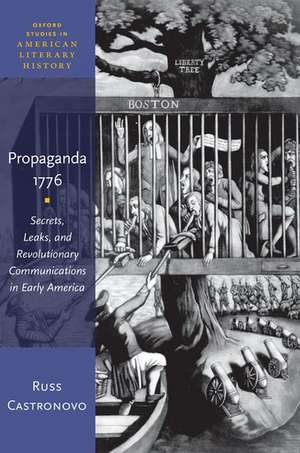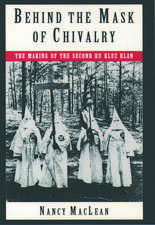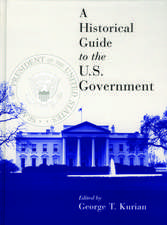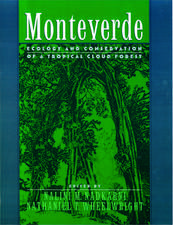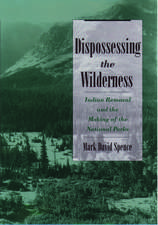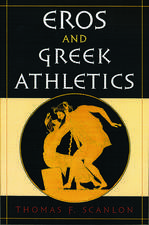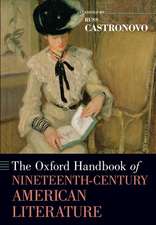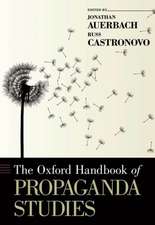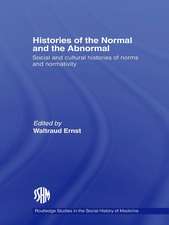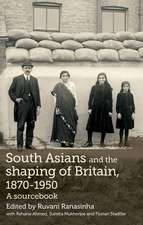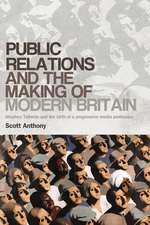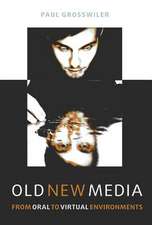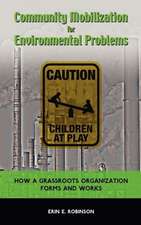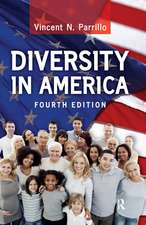Propaganda 1776: Secrets, Leaks, and Revolutionary Communications in Early America: Oxford Studies in American Literary History
Autor Russ Castronovoen Limba Engleză Paperback – 17 ian 2019
| Toate formatele și edițiile | Preț | Express |
|---|---|---|
| Paperback (1) | 177.25 lei 31-37 zile | |
| Oxford University Press – 17 ian 2019 | 177.25 lei 31-37 zile | |
| Hardback (1) | 341.40 lei 31-37 zile | |
| Oxford University Press – 25 sep 2014 | 341.40 lei 31-37 zile |
Din seria Oxford Studies in American Literary History
- 23%
 Preț: 189.55 lei
Preț: 189.55 lei - 23%
 Preț: 473.69 lei
Preț: 473.69 lei - 23%
 Preț: 190.00 lei
Preț: 190.00 lei - 17%
 Preț: 517.19 lei
Preț: 517.19 lei - 8%
 Preț: 249.20 lei
Preț: 249.20 lei - 11%
 Preț: 160.44 lei
Preț: 160.44 lei - 25%
 Preț: 547.76 lei
Preț: 547.76 lei - 15%
 Preț: 245.91 lei
Preț: 245.91 lei - 28%
 Preț: 437.67 lei
Preț: 437.67 lei - 27%
 Preț: 500.43 lei
Preț: 500.43 lei - 22%
 Preț: 485.80 lei
Preț: 485.80 lei - 25%
 Preț: 492.00 lei
Preț: 492.00 lei - 13%
 Preț: 537.39 lei
Preț: 537.39 lei - 28%
 Preț: 449.95 lei
Preț: 449.95 lei - 15%
 Preț: 478.20 lei
Preț: 478.20 lei - 28%
 Preț: 431.30 lei
Preț: 431.30 lei - 23%
 Preț: 473.16 lei
Preț: 473.16 lei - 23%
 Preț: 186.98 lei
Preț: 186.98 lei - 22%
 Preț: 486.63 lei
Preț: 486.63 lei - 24%
 Preț: 438.24 lei
Preț: 438.24 lei - 28%
 Preț: 405.91 lei
Preț: 405.91 lei - 30%
 Preț: 619.15 lei
Preț: 619.15 lei - 25%
 Preț: 494.88 lei
Preț: 494.88 lei - 28%
 Preț: 406.74 lei
Preț: 406.74 lei - 27%
 Preț: 490.86 lei
Preț: 490.86 lei - 16%
 Preț: 474.66 lei
Preț: 474.66 lei - 10%
 Preț: 162.65 lei
Preț: 162.65 lei - 17%
 Preț: 478.43 lei
Preț: 478.43 lei - 22%
 Preț: 191.32 lei
Preț: 191.32 lei - 27%
 Preț: 408.43 lei
Preț: 408.43 lei - 28%
 Preț: 487.67 lei
Preț: 487.67 lei - 12%
 Preț: 495.20 lei
Preț: 495.20 lei - 16%
 Preț: 235.21 lei
Preț: 235.21 lei - 12%
 Preț: 556.22 lei
Preț: 556.22 lei - 19%
 Preț: 517.04 lei
Preț: 517.04 lei -
 Preț: 265.81 lei
Preț: 265.81 lei - 18%
 Preț: 216.55 lei
Preț: 216.55 lei - 12%
 Preț: 493.95 lei
Preț: 493.95 lei - 13%
 Preț: 332.46 lei
Preț: 332.46 lei - 18%
 Preț: 518.08 lei
Preț: 518.08 lei - 24%
 Preț: 475.66 lei
Preț: 475.66 lei - 30%
 Preț: 491.75 lei
Preț: 491.75 lei - 14%
 Preț: 253.16 lei
Preț: 253.16 lei - 27%
 Preț: 464.92 lei
Preț: 464.92 lei
Preț: 177.25 lei
Preț vechi: 212.16 lei
-16% Nou
Puncte Express: 266
Preț estimativ în valută:
33.92€ • 36.62$ • 28.45£
33.92€ • 36.62$ • 28.45£
Carte tipărită la comandă
Livrare economică 08-14 aprilie
Preluare comenzi: 021 569.72.76
Specificații
ISBN-13: 9780190677497
ISBN-10: 019067749X
Pagini: 258
Ilustrații: 12 illus.
Dimensiuni: 155 x 234 x 15 mm
Greutate: 0.43 kg
Editura: Oxford University Press
Colecția OUP USA
Seria Oxford Studies in American Literary History
Locul publicării:New York, United States
ISBN-10: 019067749X
Pagini: 258
Ilustrații: 12 illus.
Dimensiuni: 155 x 234 x 15 mm
Greutate: 0.43 kg
Editura: Oxford University Press
Colecția OUP USA
Seria Oxford Studies in American Literary History
Locul publicării:New York, United States
Recenzii
[B]oth books have done a service to the field of early North American studies in pushing our understandings of rumor, rhetoric, and, yes, propagandistic communications forward. This fascinating field, once opened, should continue to yield new insights and prompt new methods of analysis. We owe a debt to each of these authors for his work in this area.
Burke was also a shrewd political operative, who reframed issues and changed positions depending on the exigencies of the moment. It is this tactical aspect of political life-the qualities that make sports analogy often seem so apt-that comes through most clearly in Castronovo's treatment of propaganda. This focus distinguishes his approach from that of Chomsky, who critiques the mainstream news media as state-sanctioned disseminators of misinformation and propaganda froma stance of philosophical certainty. In the political writings of the Revolutionary era, Castronovo sees something more fluid and multifaceted at work, with imaginative and even playful elements being central. At its best, this book celebrates the arts of politics.
Neo-whig historians attacked progressive historians who debunked patriot 'propaganda' by telling us that American revolutionaries were true believers, if ideological, and radical in ways we can embrace without much reservation. Too often this has devolved into another version of American exceptionalism. Russ Castronovo has another take on their political talents: he finds a creative resistance to power in the modes of dissemination as much as their message. The radicalism of the Revolution is back up for grabs in this fascinating corrective.
In this fresh, provocative look at the revolutionary era, Russ Castronovo challenges our knee-jerk assumptions about propaganda and enhances our understanding of early American politics.... Castronovo encourages a deeper appreciation for revolutionary propaganda as a way to make sense of American democracy and its fractures.... Castronovo's bold reconceptualization offers plenty of tools for rethinking this crucial-and misunderstood-phenomenon.
Castronovo deftly-even audaciously-shuttles his way back and forth across the last three centuries to uncover the democratic work of propaganda operative at the nation's founding and continuing to this day. Understanding propaganda as a lateral and volatile form of 'communications in motion,' Castronovo especially challenges our ideas about Revolutionary-era texts, redefining what they meant by recovering how they moved. Propaganda 1776 will be of great interest to scholars of U.S. literary, communications, media and political history.
Propaganda 1776 is an elegantly written, compellingly conceptualized book. A provocative read from page to page, it makes an original argument about the American Revolution by reviving and revivifying the concept of propaganda.
In Propaganda 1776, Russ Castronovo sets forth a bold new paradigm of early American letters
Burke was also a shrewd political operative, who reframed issues and changed positions depending on the exigencies of the moment. It is this tactical aspect of political life-the qualities that make sports analogy often seem so apt-that comes through most clearly in Castronovo's treatment of propaganda. This focus distinguishes his approach from that of Chomsky, who critiques the mainstream news media as state-sanctioned disseminators of misinformation and propaganda froma stance of philosophical certainty. In the political writings of the Revolutionary era, Castronovo sees something more fluid and multifaceted at work, with imaginative and even playful elements being central. At its best, this book celebrates the arts of politics.
Neo-whig historians attacked progressive historians who debunked patriot 'propaganda' by telling us that American revolutionaries were true believers, if ideological, and radical in ways we can embrace without much reservation. Too often this has devolved into another version of American exceptionalism. Russ Castronovo has another take on their political talents: he finds a creative resistance to power in the modes of dissemination as much as their message. The radicalism of the Revolution is back up for grabs in this fascinating corrective.
In this fresh, provocative look at the revolutionary era, Russ Castronovo challenges our knee-jerk assumptions about propaganda and enhances our understanding of early American politics.... Castronovo encourages a deeper appreciation for revolutionary propaganda as a way to make sense of American democracy and its fractures.... Castronovo's bold reconceptualization offers plenty of tools for rethinking this crucial-and misunderstood-phenomenon.
Castronovo deftly-even audaciously-shuttles his way back and forth across the last three centuries to uncover the democratic work of propaganda operative at the nation's founding and continuing to this day. Understanding propaganda as a lateral and volatile form of 'communications in motion,' Castronovo especially challenges our ideas about Revolutionary-era texts, redefining what they meant by recovering how they moved. Propaganda 1776 will be of great interest to scholars of U.S. literary, communications, media and political history.
Propaganda 1776 is an elegantly written, compellingly conceptualized book. A provocative read from page to page, it makes an original argument about the American Revolution by reviving and revivifying the concept of propaganda.
In Propaganda 1776, Russ Castronovo sets forth a bold new paradigm of early American letters
Notă biografică
Russ Castronovo is Tom Paine Professor of English and Dorothy Draheim Professor of American Studies at the University of Wisconsin-Madison. His previous books include Beautiful Democracy: Aesthetics and Anarchy in a Global Era; Necro Citizenship: Death, Eroticism, and the Public Sphere in the Nineteenth-Century United States; and Fathering the Nation: American Genealogies of Slavery and Freedom.
